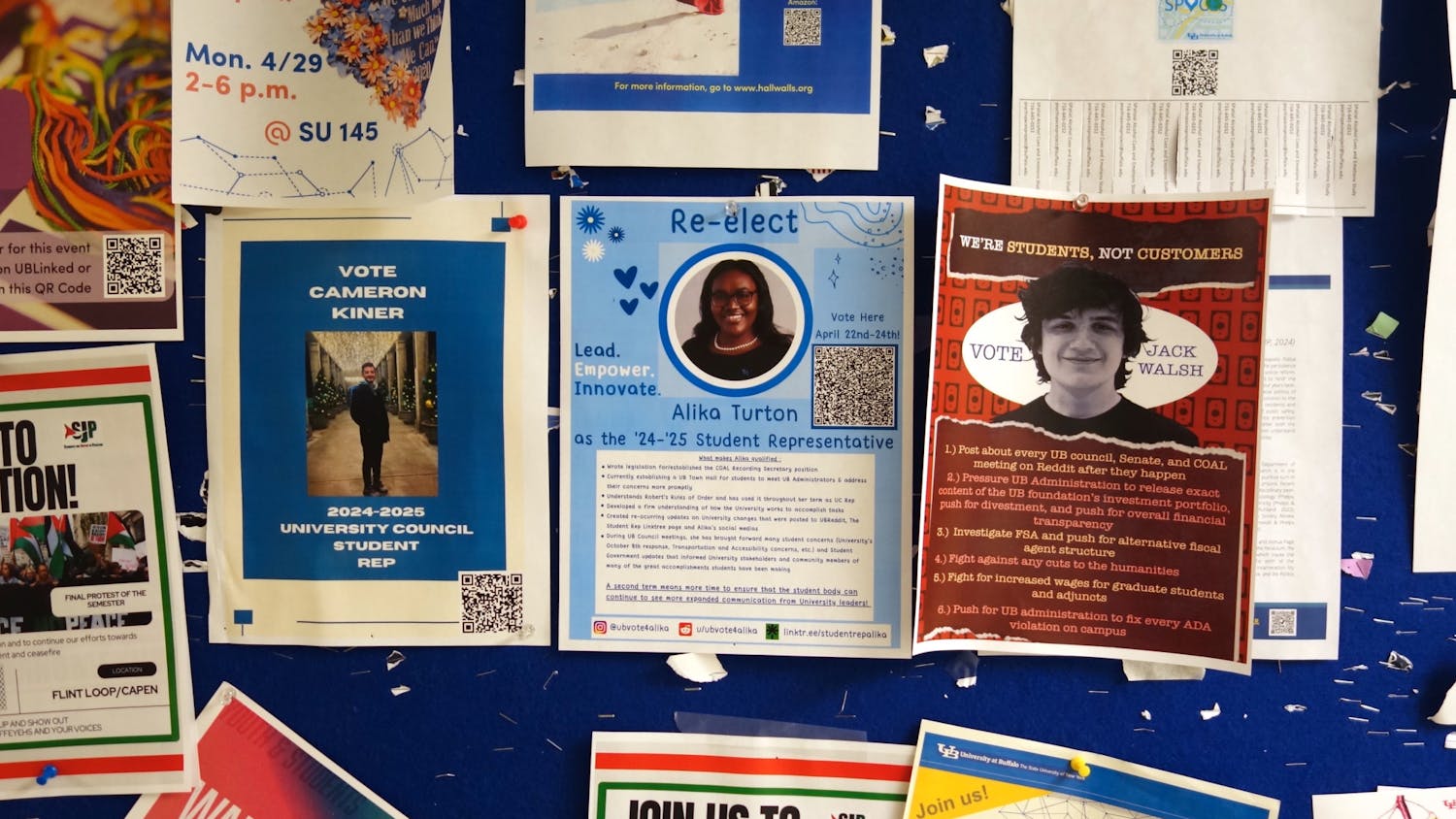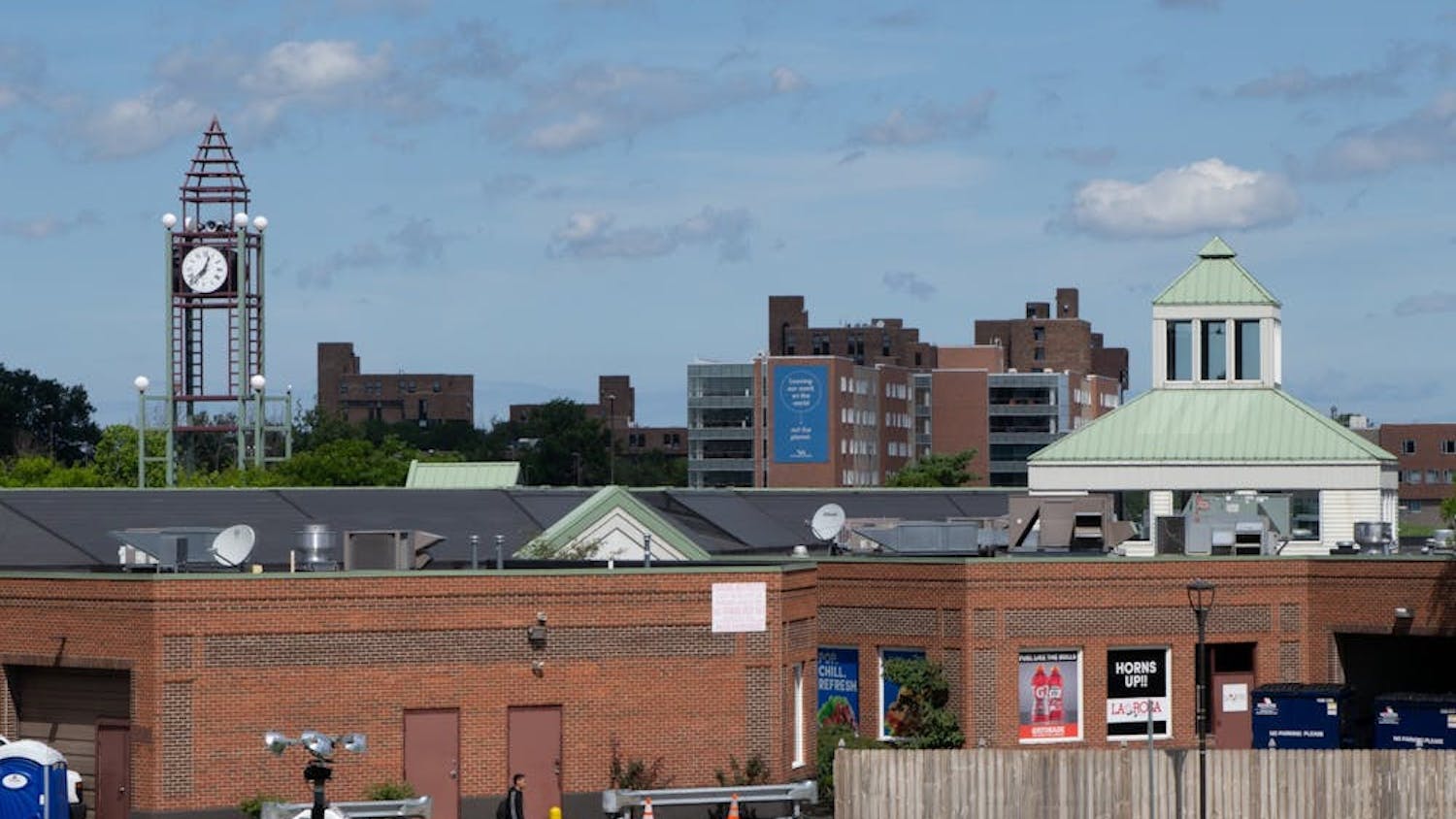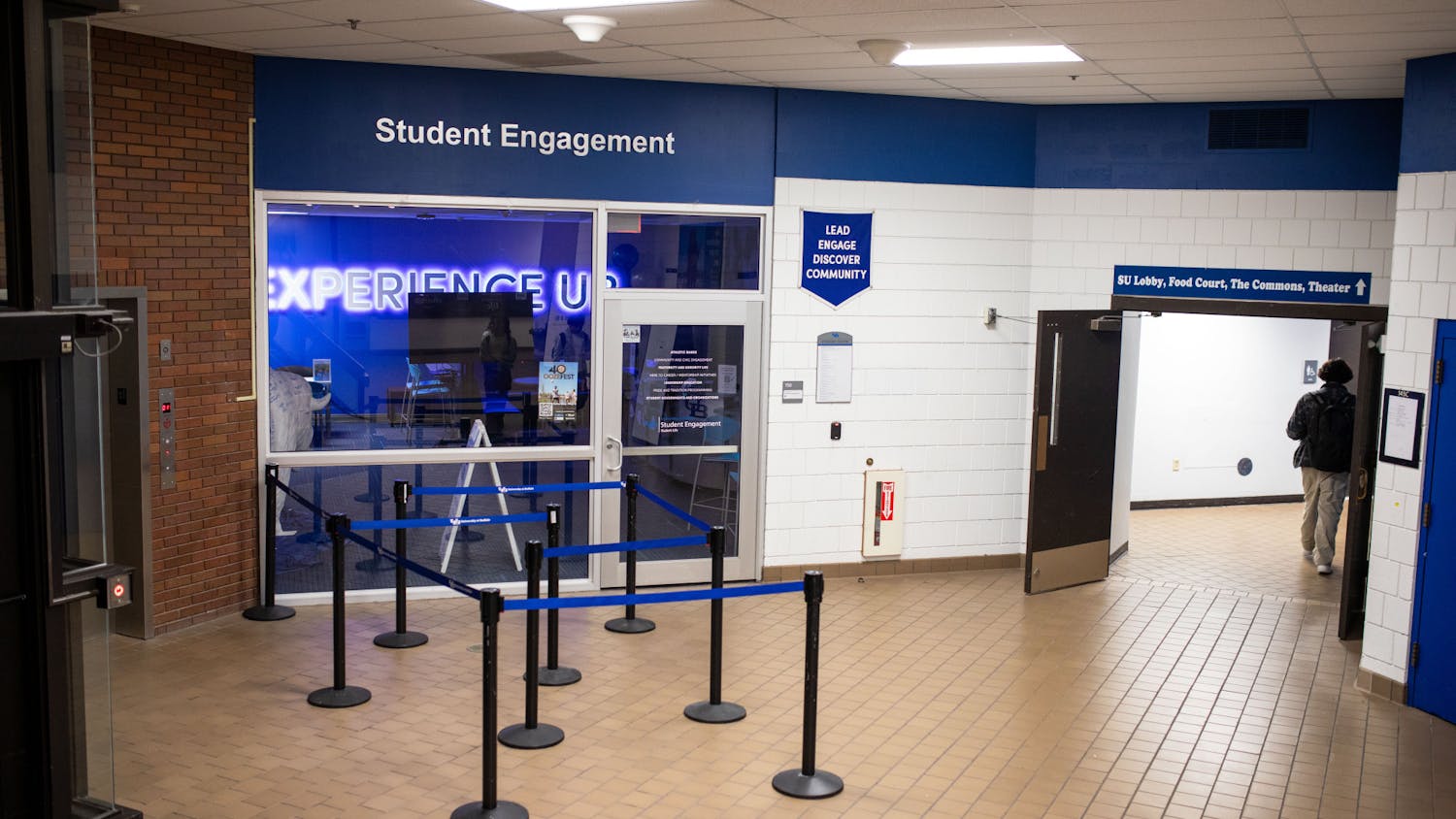In the midst of national mourning, anxiety, and talk of retaliation, close to 100 UB students attended the Muslim Student Association's panel discussion designed to dispel fear and promote tolerance and inter-cultural communication.
Representatives from the campus Islamic community shared their perspectives on Tuesday's tragic events and fielded questions from the audience in an effort to combat ignorance through increased awareness.
"This forum is the first step towards the healing process," said Minara Uddin, MSA secretary and main organizer of the event.
The panel opened by condemning last week's attacks and their perpetrators - as Americans, as Muslim-Americans, and as human beings.
"[Tuesday] was a very sad day for Americans and for us as Arabs in America," said Robert Abilmouna, a member of the Organization of Arab Students.
"We are all affected by this by virtue of being human," OAS Vice President Abdul Sallaj said.
The panel warned against the "us" and "them" distinction often used to split Americans along ethnic, racial and religious lines.
"People need to dispel the concept that it is us and them," said Faizeen Khandaker, a Cornell graduate and former MSA national officer, "Muslims are Americans."
Several panel members expressed the difficult situation in which Arab-Americans and Muslim-Americans find themselves in the wake of the terrorist attacks.
"We want to mourn, we want to be sad, with the rest of America," said Faizan Haq, a lecturer in the UB Cora P. Maloney College, who reminded those assembled that Muslims were among those injured or killed in the attacks.
Yet at the same time, many Americans of Middle Eastern descent are forced to defend themselves and their religion from guilt by association.
After the 1993 bombing of the World Trade Center and the Oklahoma City bombing, in which Islamic fundamentalists were initially - but falsely - suspected, many Arab-Americans were verbally abused, harassed and became targets of violent physical attacks.
The implication of Saudi-born Osama bin Laden, leader of a radical Islamic fringe group, in Tuesday's terrorist attacks has brought the issue back before the public eye. In recent days, mosques and Muslim-owned businesses have been vandalized in Dallas, Texas; Alexandria, Va.; San Francisco, Calif.; and Queens, N.Y.
Friday's forum was in part intended as a proactive measure to ease tensions and address misperceptions and stereotypes before they escalate, to prevent similar incidents at UB.
"We just want everyone to know that not all Arabs are terrorists," explained Abilmouna.
The media, as well as popular culture and films such as "The Siege" and "True Lies," often over generalize and depict darker-skinned individuals as villains, said several members of the panel.
"Islam seems to be a religion of the sword or a religion of violence," Uddin said of popular perceptions.
"As Muslims, as Arabs, we absolutely do not encourage that type of behavior," MSA President Khurram Khan said.
The panel members made a distinction between Islamic religious beliefs and what they called the perversion of such beliefs by religious "fanatics."
Haq explained that the Qur'an, the core religious text in Islamic faith, explicitly preaches nonviolence.
Followers of Islam are instructed not to injure anyone who has not raised arms against them, said Haq, adding that even cutting down a tree that bears fruit is considered a desecration of life.
"By no means is this [terrorism] representative of Islam or Muslims," said Haq.
Khandaker urged people not to judge the Islamic faith - or the billions of Muslims around the world - on the basis of the violent acts of a minority. He said that a belief is only incorporated into Islam if Muslims as a whole support such an inclusion.
"Muslims, as a unit, completely condemn what has happened," Khandaker said.
Extremists such as bin Laden and fundamentalists in any religious sect often distort religious beliefs to further a political end, he said.
"We should be the spokespeople to say that political agendas and the politics of the world should be separated from religious values," Khandaker added.
While panel participants uniformly condemned the attackers, many said they hoped the United States would learn a lesson from the tragedy.
"This is a wake-up call for the United States," said Abilmouna. "We have to realize we are part of the world." Abilmouna and others believe the United States has become increasingly isolationist, often to the detriment of other nations.
The United States views itself as "the best," the police of the world, the international superpower, Abilmouna said. Consequently, he continued, Americans tend to forget the plights of those outside U.S. borders.
Sallaj said the United States should reach out to many of the developing nations often alienated by U.S. foreign policy. He cited the American withdrawal from the recent U.N. Conference of Racism as one example of this country's detachment from the world at large.
In response to a question about what advice panel members would give to President Bush, Sallaj said, "Don't make it seem as though you're building a mile-high wall around the U.S."
While most panelists agreed the United States needs to execute some form of retaliation, Uddin cautioned attendees that "violence only breeds more violence," and suggested the United States take a more diplomatic approach to combat terrorism.
"We must stand as one at this grave hour of tragedy. One people, not just as the United States of America, but as the united states of the world," Haq said in an opening prayer.
Panel members urged students to become active participants in the formulation of national policy goals by voting, writing to representatives, signing petitions and most importantly, by becoming informed.
Khan said that similar forums and inter-cultural communication should be frequent and ongoing - not simply a reaction when tragedies occur.




